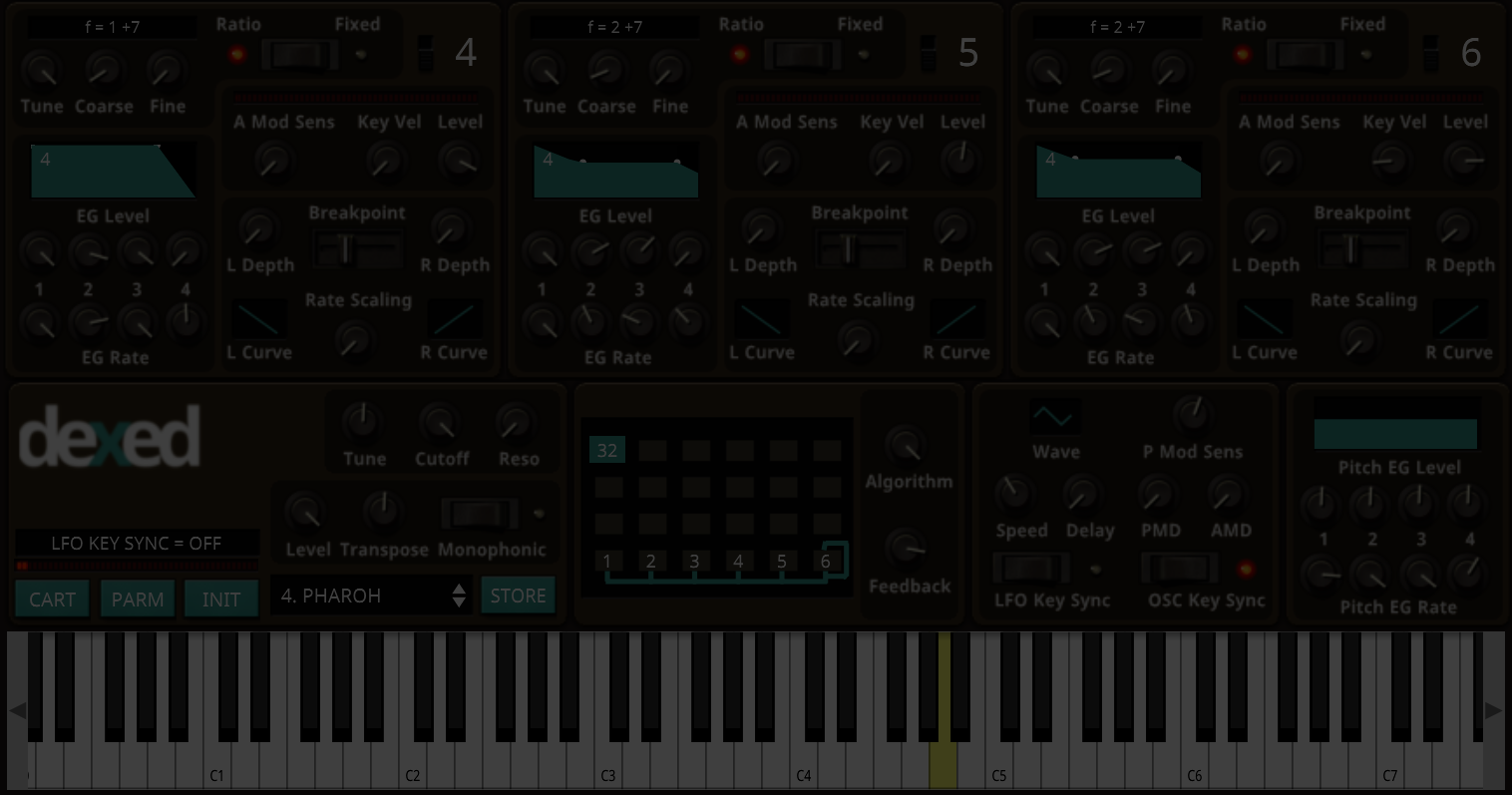Do you feel like you could do with more virtual instruments and sound FX plugins on Linux? Filipe Coelho released new ports of synths that are based on Yamaha DX7, Oberheim OB-X, and Roland TB-303.
The Ports section of the Distrho project is essentially comprised of native ports of plugins that had been released by their developers on KVR or elsewhere as free software. Pretty much all of those plugins were developed with the JUCE crossplatform multimedia framework which makes Filipe’s job a lot easier.
This section now contains 3 new software synthesizers and 3 new audio effects:
- Dexed — a softsynth based on Yamaha DX7. It might look simple, but it’s versatile enough to produce a variety of sounds, from ethereal pads to weird sounds effects.
- Nekobi — a softsynth that is loosely based around Roland TB-303. This might come in handy to those who have been composing in Ardour 3 and missing an LV2/VST version of the DSSI-based counterpart called Nekobee.
- Obxd — another synth based on a real piece of hardware, this time — Oberheim OB-X. Vadim Filatov, original developer of the plugin, also participated in development of Dexed.
- KlangFalter — a convolution reverb that supports true stereo impulse response files and loads them in their entirety while managing to keep the DSP load low enough (at least, that’s the claim).
- MVerb — a reverb that provides a much anticipated free implementation of Jon Dattorro’s figure-of-eight topology of the feedback loop (see the paper for details). A Linux VST build of the plugin was provided by the original developer, Martin Eastwood. Filipe provided the LV2 version of the reverb effect.
- Pitched Delay — a basic delay effect that can optionally pitch-correct the sound both inside and outside the feedback loop.
All plugins are available as LV2 and native Linux VST effects supported by e.g. Ardour and Qtractor digital audio workstations. Source code is up on GitHub, same as the issue tracker.
Patreon subscribers get early access to my posts. If you are feeling generous, you can also make a one-time donation on BuyMeACoffee.

